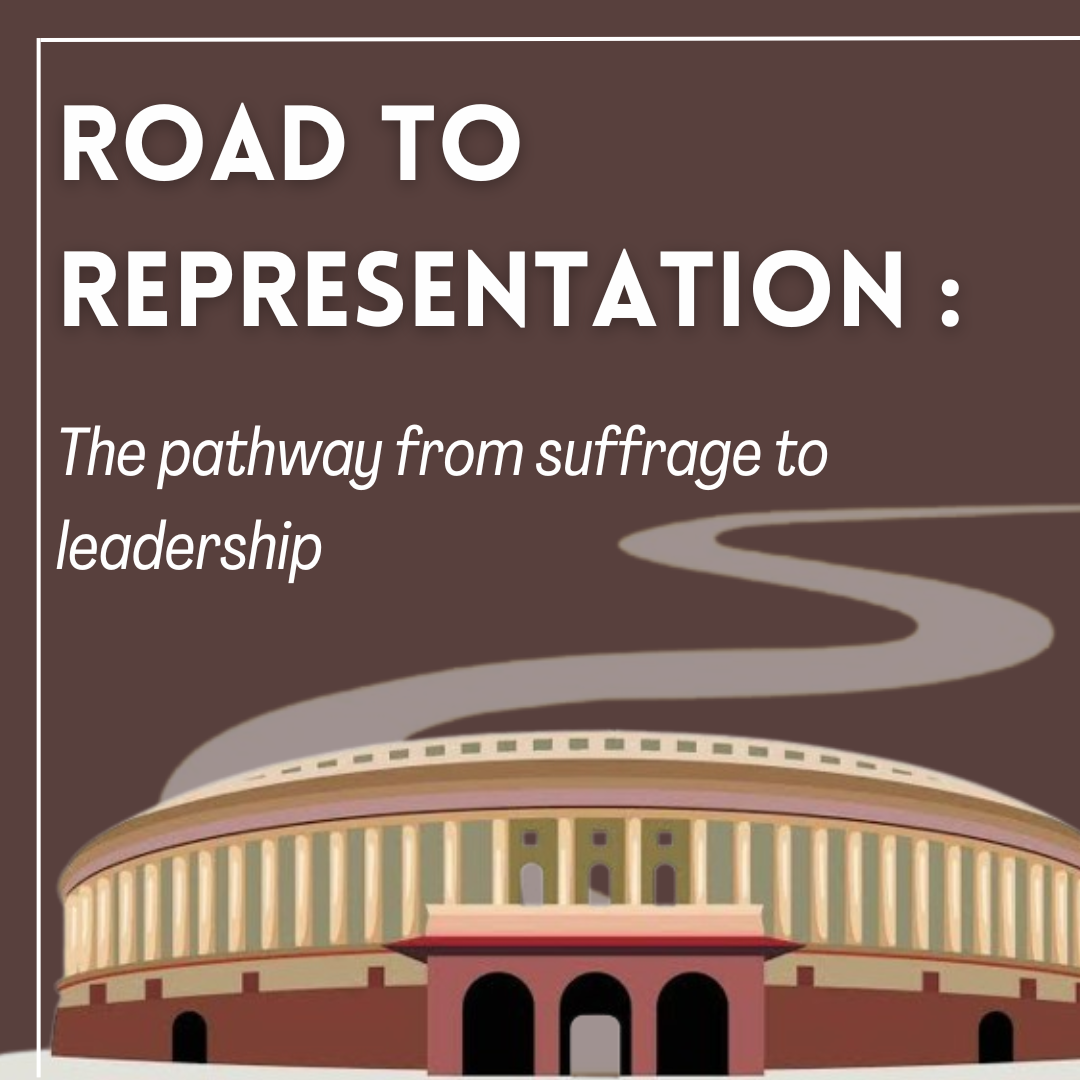Road to Representation: The Pathway from Suffrage to Leadership
Road to Representation: The Pathway from Suffrage to Leadership
“There cannot be true democracy unless women's voices are heard. There cannot be true democracy unless women are given the opportunity to take responsibility for their own lives. There cannot be true democracy unless all citizens are able to participate fully in the lives of their country.”
~ Hillary Clinton
Behind the vibrant colours of India's history, women have stood straight, painting the canvas of strength, courage and determination. Yet, on this canvas lie the patterns of inequality, exclusion and injustice.
Despite the progress made by India in recent years, the problem of women's low participation in politics remains a challenge. As we move towards gender-equal politics, it is important to hear the voices of women from all the different strata to increase empowerment for women in politics.
Historical Context in India:
The struggle of women in India to participate in politics began with the Suffrage movement in the 1900s. During the colonial period, women's participation alongside their male counterparts was one of the most significant factors that should be recognized by each citizen of India. After independence, the right to vote was granted to them by the Constitution. The Constitution enshrined the principle of gender equality and granted women the right to vote and to stand for elected office. Their participation in politics remained low in the 1990s.
The post-independence era saw the emergence of strong women leaders who rose to prominence and held positions of power. Despite societal norms, women made strides in electoral politics. These women politicians and activists remain at the forefront of advocating women's rights.
Representation in Parliament and State Assemblies:
Women's representation in parliament and state assemblies has been a topic of significance. The term ‘representation’ here means the involvement of women in politics. India ranks 20th from the bottom in terms of representation of women in politics. Currently, 15% of Lok Sabha MPs and 13% of Rajya Sabha MPs are women. There are many reasons for this number to be this low. Women's literacy rate is low and even if they are educated, they are not politically motivated. Another challenge is the society where people think that politics is not for women. Political parties are also not very interested in giving the ticket to their female candidates to fight the elections. Women's representation in the state assemblies varies across the states but generally, it remains low. No state has more than 20% of women representation in their state. Chhattisgarh has 18% representation which is the highest while Himachal Pradesh has only 1 women MLA and Mizoram has none.
To address this issue of underrepresentation of women in politics, the Indian government has introduced reservation of seats for women in the Panchayati Raj institutions through the 73rd Constitutional Amendment Act, 1992. Additionally, some states such as Bihar, West Bengal and Odisha have also implemented reservation of seats for women in state legislative assemblies. Also, through the Women's Reservation Act, of 2023, the Constitution reserves one-third of all seats in Lok Sabha, State legislative assemblies and the Legislative Assembly of the National Capital Territory of India. It is yet to be implemented.
Despite the efforts taken by the state, women candidates often have to face challenges such as discrimination, violence, and intimidation during election campaigns. The patriarchal attitude in society and the political parties limit their access to resources for them. The gender stereotypes that come with it can either facilitate or hinder their political participation. It is important to promote gender equality through education, awareness campaigns and media representation to fight in the face of this challenge.
“All my life I've believed that men and women have equal capacities and talents, consequently there should be equality in life chances”.
~Julia Gillard
Written by
-Rakhi




Comments
Post a Comment